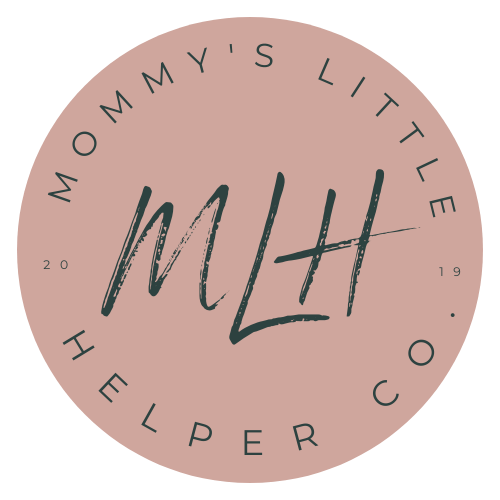As a mom, you know the importance of teaching your children valuable life skills. But when it comes to chores, the question arises: Should I pay my kids to do them? Whether you’ve got a little helper eager to pitch in, this is a tricky topic for many parents. While some believe that paying for chores encourages responsibility, others argue that kids should do their share without financial incentives. Let’s break down the pros and cons of paying kids for chores.
The Pros of Paying for Chores
1. Teaches the Value of Money
One of the biggest advantages of paying kids for chores is that it teaches them the value of money. When kids earn money, they learn that hard work and responsibility are rewarded. This is an important lesson that will help them later in life as they start managing their own money. After earning money for their chores, you can teach them how to save, spend, or donate a portion of it. A simple system for saving and spending is a great introduction to financial literacy and will set them up for success later in life.
2. Motivates Children to Help
Let’s be honest. Sometimes, kids just need an incentive to get moving. Offering a reward for chores can help motivate your child, especially if they’re still young. If you’ve got a toddler tower in the kitchen, you can let them use it to assist in meal prep and then offer a small reward for their participation.
3. Fosters Independence
When children are given tasks and earn money for their work, it fosters independence. They begin to understand that they can contribute to the household and take pride in their accomplishments. As a homeschooling mom, you likely know how important it is for your kids to learn how to be self-sufficient. Assigning chores allows them to do just that, whether it’s putting their toys away, feeding pets, or helping with the dishes.
Further Reading: How to Encourage Independence in Toddlers for Busy Parents
The Cons of Paying for Chores
1. May Promote the “Pay Me” Mentality
One of the biggest risks of paying for chores is that it can promote a mindset where kids expect to get paid for everything they do. Some argue that children should contribute to the household simply because they are part of the family. Paying for chores can make them feel like it’s only worth their time if there’s a financial reward involved.
2. Can Undermine Teamwork
In some families, having everyone chip in without the expectation of payment helps create a sense of teamwork. When kids are paid for every task, they may start to see their contributions as separate from the family unit. This can hinder the collaborative spirit you’re trying to build in your home.
3. Might Not Be Sustainable Long-Term
What happens when you no longer have the funds to offer a reward for chores or when your child’s list of chores grows too long? The system might not be sustainable, especially as your kids grow older and take on more responsibilities. It’s important to ensure that the reward system doesn’t become a crutch and that kids understand they need to do chores whether or not they’re getting paid.
4. Can Lead to Arguments
If the payment system isn’t clear or fair, it can lead to disagreements. For example, if you’ve got more than one child, they may start arguing about who does more work or feel that their contributions aren’t being properly compensated. It’s essential to have an open discussion with your kids about expectations and rewards if you decide to pay them for chores.
Alternatives to Paying for Chores
If you’re not comfortable with the idea of paying your kids to do chores, there are other ways to motivate them. Here are some alternatives:
Chore Chart with Rewards
Instead of paying for chores, consider a reward system where kids earn points or stars on a chart. Once they accumulate enough points, they can redeem these points for something they want, such as extra playtime or a special outing.
Family Service Projects
Rather than giving kids money, involve them in family service projects. This helps them understand the importance of giving back and contributes to building a strong family bond.
Modeling Responsibility
Show your kids how to take pride in their home and responsibilities by modeling the behavior you want them to learn. When they see you taking care of things without needing external rewards, they’ll be more likely to do the same.
Incorporating Learning and Fun in Chores
Whether you decide to pay your kids or not, make chores fun and educational. For example, using a learning tower in the kitchen allows toddlers to get involved in cooking or cleaning safely. A toddler tower can help children feel empowered as they’re able to reach counters and participate in tasks alongside you. This creates an opportunity for skill-building that is both practical and enjoyable.
Another option is providing kids with Montessori-inspired toys or tools that integrate into your homeschooling routine. For example, a wooden knife for toddlers can help with meal prep or cutting fruits, allowing your child to learn and practice skills while participating in family chores. This makes them feel more involved in the family’s daily tasks and teaches them responsibility through hands-on experience.
Final Thoughts: Finding the Right Balance
Ultimately, whether or not you decide to pay the kids for chores really comes down to finding what works for your family. Some kids will love the idea of earning a little something for their hard work, while others might find it more fulfilling just to help out without any cash involved. It's all about figuring out what clicks with your child’s personality. If you do go the route of paying, just be sure to set clear expectations so everyone knows what's what. At the end of the day, it’s all about teaching them responsibility, building independence, and helping them feel like they’re contributing to the family.
And hey, if you’re looking for ways to get the kids involved around the house while also helping them build those life skills, take a look at our learning towers and toddler furniture at Mommy’s Little Helper Co. They’re perfect for your little helper to join in on the action safely and, trust me, it’s so nice to see them feel like they’re part of it all!




